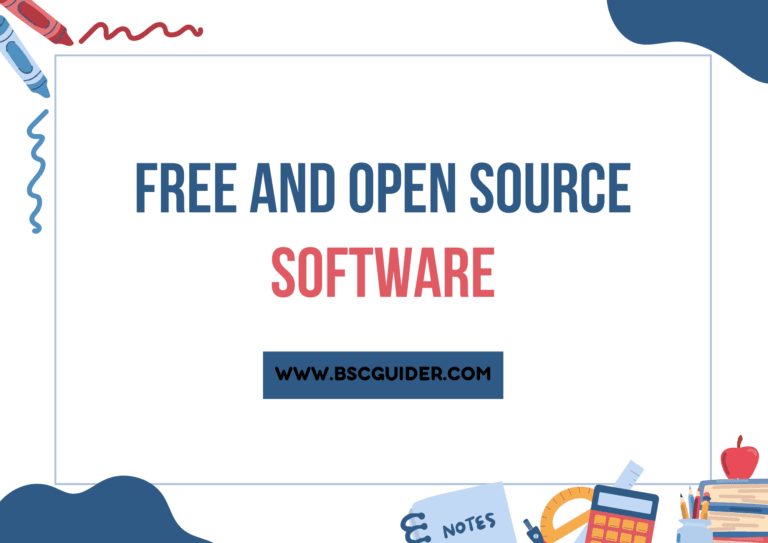
Free and Open Source Software (FOSS) is a core subject in the BSc CS 1st Semester. This course introduces students to the fundamentals of Free and Open Source Software, covering key concepts like the principles of FOSS, licensing, open-source communities, and popular open-source tools and platforms. It is designed to build a strong foundation in the use and development of open-source software, which supports future learning in computer science. High-quality notes for this subject are provided by BSC GUIDER, a trusted source for BSc CS 1st Year students. These notes are carefully crafted to be clear and easy to understand, making them an excellent resource for mastering the essentials of Free and Open Source Software.
Free and Open Source Software Notes Unit 1 – 3
Unit 1
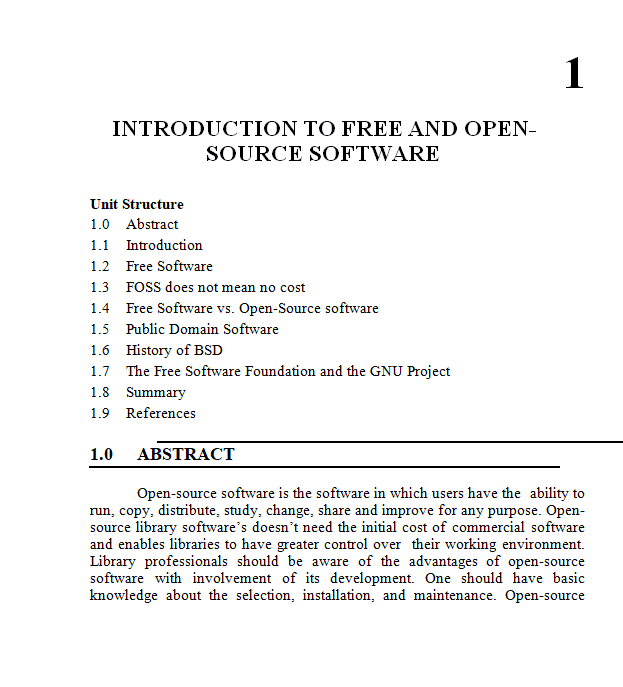
Introduction to Free and open source Software
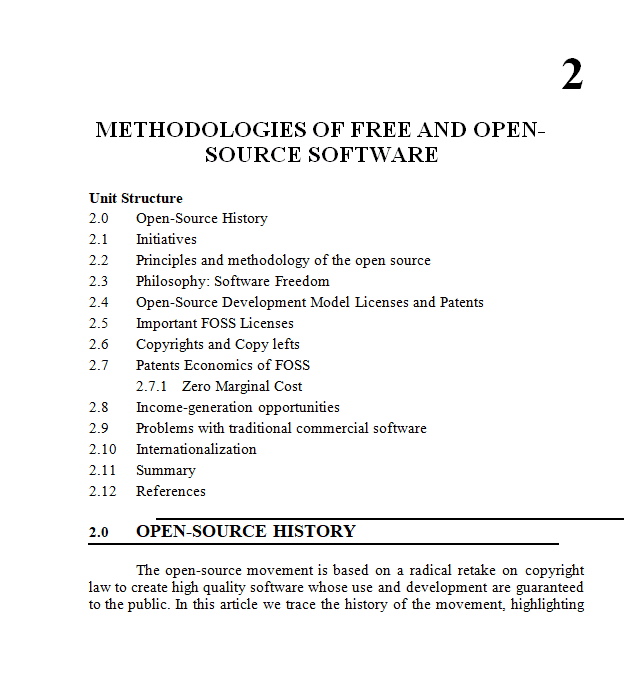
Methodologies of Free and open source Software
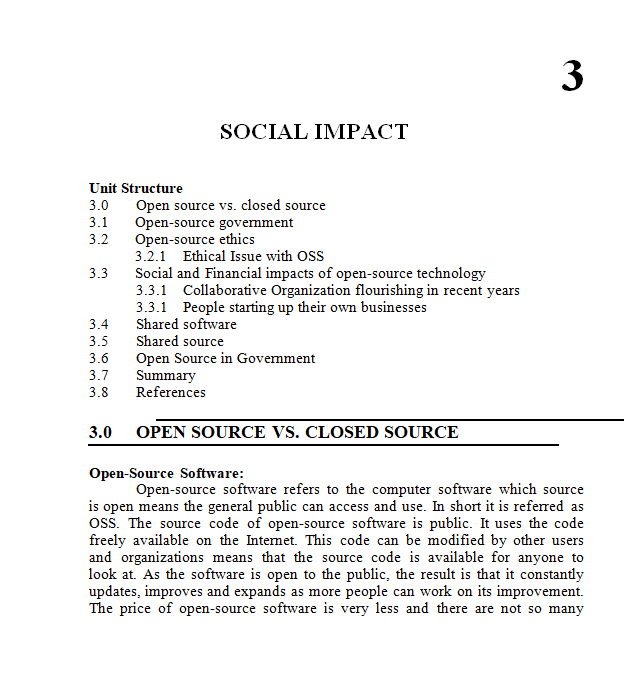
Social Impact
Unit 2
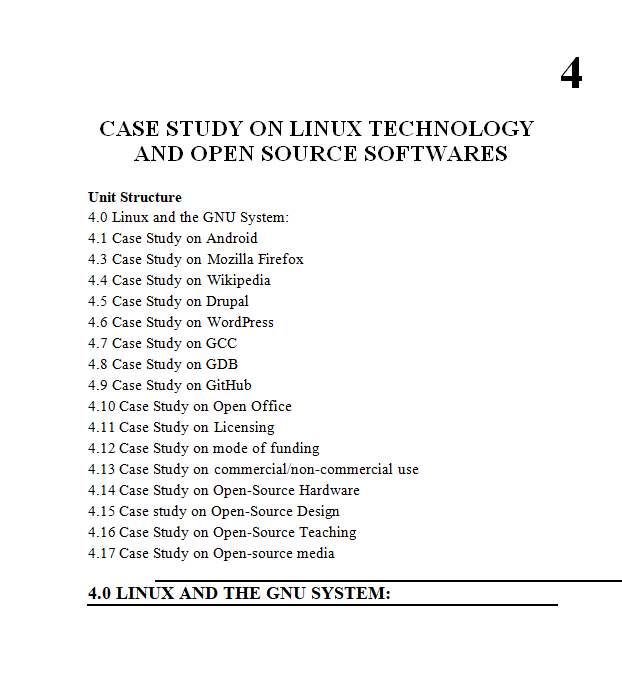
Case Study On Linux Technology And Open Source Softwares
Unit 3
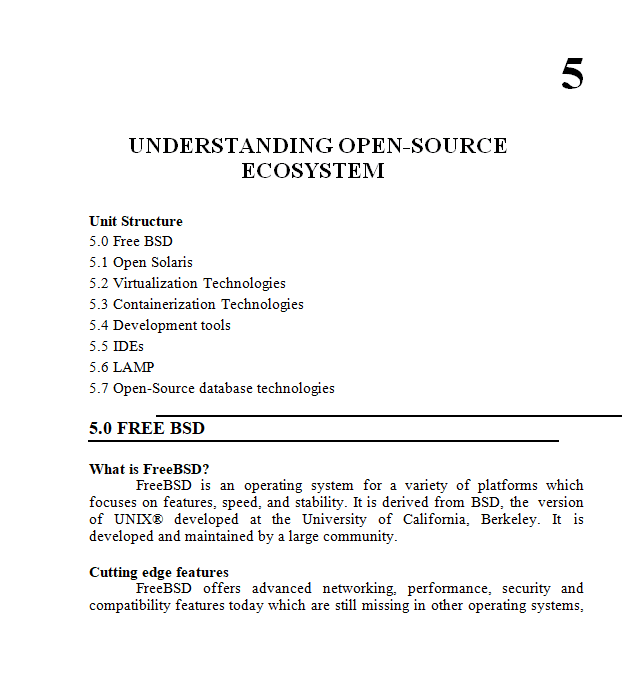
Understanding Open Source Ecosystem
Objectives of Free and Open Source Software (FOSS) :-
Open Source has acquired a prominent place in software industry. Having knowledge of Open Source and its related technologies is an essential for Computer Science student. This course introduces Open Source methodologies and ecosystem to students.
1) Upon completion of this course, students should have a good working knowledge of Open Sourceecosystem, its use, impact and importance.
2) This course shall help student to learn Open Source methodologies, case studies with real life examples.
Recommended Books and Resources
Text books:
- Unix Concepts and Applications by Sumitabha Das, Tata McGraw Hill Education, 2006
- The official Ubuntu Book, 8th Edition
Additional References:
- The Linux Documentation Project: http://www.tldp.org/
- Docker Project Home: http://www.docker.com
- Linux kernel Home: http://kernel.org
- Open Source Initiative: https://opensource.org/
- Linux Documentation Project: http://www.tldp.org/
- Wikipedia: https://en.wikipedia.org/
- Contributing_to_Wikipedia : https://developer.wikimedia.org/contribute/
- Github: https://help.github.com/
- The Linux Foundation: http://www.linuxfoundation.org/
The Official Ubuntu Book 9th Edition
100K+ Downloads
Free and Open Source - A General Introduction By Kenneth Wong and Phet Sayo
100K+ Downloads
Scope of Free And Open Source Software :-
Unit I :
Introduction
Introduction: Open Source, Free Software, Free Software vs. Open Source software, Public Domain Software, FOSS does not mean no cost. History: BSD, The Free Software Foundation and the GNU Project.
Methodologies
Open Source History, Initiatives, Principle and methodologies. Philosophy : Software Freedom, Open Source Development Model Licenses and Patents: What Is A License, Important FOSS Licenses (Apache, BSD, GPL, LGPL), copyrights and copy lefts, Patents Economics of FOSS : Zero Marginal Cost, Income-generation opportunities, Problems with traditional commercial software, Internationalization
Social Impact
Open source vs. closed source, Open source government, Open source ethics. Social and Financial impacts of open source technology, Shared software, Shared source, Open Source in Government.
Unit II
Case Studies
Example Projects: Apache web server, GNU/Linux, Android, Mozilla (Firefox), Wikipedia, Drupal, wordpress, GCC, GDB, github, Open Office. Study: Understanding the developmental models, licensings, mode of funding, commercial/non-commercial use. Open Source Hardware, Open Source Design, Open source Teaching. Open source media. Collaboration, Community and Communication
Contributing to Open Source Projects
Introduction to github, interacting with the community on github, Communication and etiquette, testing open source code, reporting issues,
contributing code. Introduction to wikipedia, contributing to Wikipedia Or contributing to any prominent open source project of students choice Starting and Maintaining own Open Source Project.
Unit III
Understanding Open Source Ecosystem
Open Source Operating Systems: GNU/Linux, Android, Free BSD, Open Solaris. Open Source Hardware, Virtualization Technologies, Containerization Technologies: Docker, Development tools, IDEs, debuggers, Programming languages, LAMP, Open Source database technologies
Syllabus of Free and Open Source Software
Unit 1
1.1 INTRODUCTION TO FREE AND OPEN- SOURCE SOFTWARE
Introduction:
- Open Source
- Free Software
- Free Software vs. Open Source Software
- Public Domain Software
- FOSS does not mean no cost
History:
- BSD (Berkeley Software Distribution)
- The Free Software Foundation (FSF)
- The GNU Project
1.2 METHODOLOGIES OF FREE AND OPEN- SOURCE SOFTWARE
- Open-Source History
- Initiatives
- Principles and methodology of the open source
- Philosophy: Software Freedom
- Open-Source Development Model Licenses and Patents
- Important FOSS Licenses
- Copyrights and Copy lefts
- Patents Economics of FOSS
- Zero Marginal Cost
- Income-generation opportunities
- Problems with traditional commercial software
- Internationalization
1.3 SOCIAL IMPACT
- Open source closed source
- Open-source government
- Open-source ethics
- Ethical Issue with OSS
- Social and Financial impacts of open-source technology
- Collaborative Organization flourishing in recent years
- People starting up their own businesses
- Shared software
- Shared source
- Open Source in Government
Unit 2
2. CASE STUDY ON LINUX TECHNOLOGY AND OPEN SOURCE SOFTWARES
Linux and the GNU System:
Case Study on Android
- Case Study on Mozilla Firefox
- Case Study on Wikipedia
- Case Study on Drupal
- Case Study on WordPress
- Case Study on GCC
- Case Study on GDB
- Case Study on GitHub
- Case Study on Open Office
- Case Study on Licensing
- Case Study on mode of funding
- Case Study on commercial/non-commercial use
- Case Study on Open-Source Hardware
- Case study on Open-Source Design
- Case Study on Open-Source Teaching
- Case Study on Open-source media
Unit 3
3. UNDERSTANDING OPEN-SOURCE ECOSYSTEM
- Free BSD
- Open Solaris
- Virtualization Technologies
- Containerization Technologies
- Development tools
- IDEs
- LAMP
- Open-Source database technologies